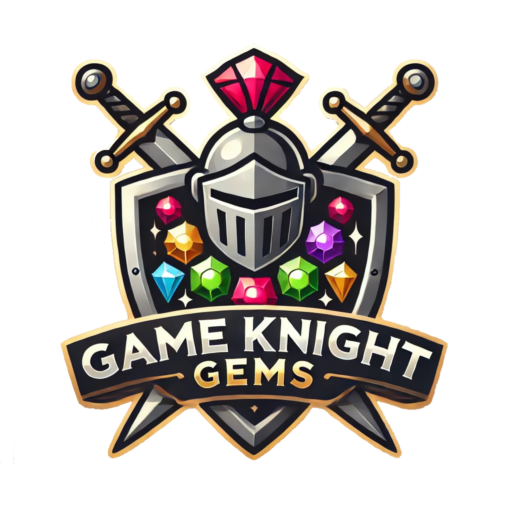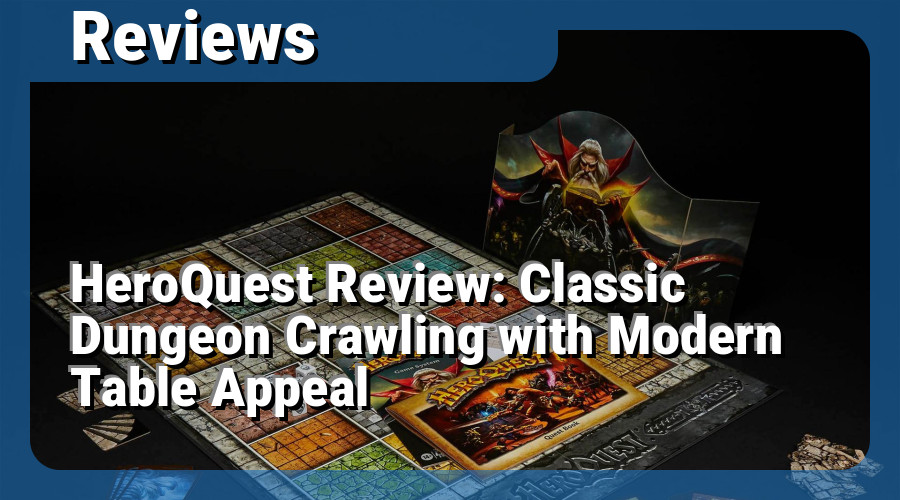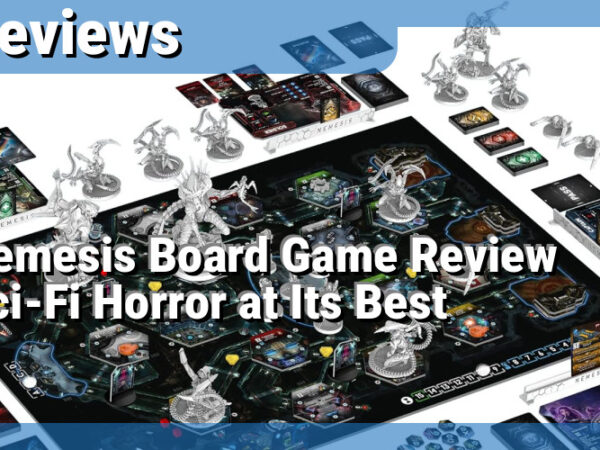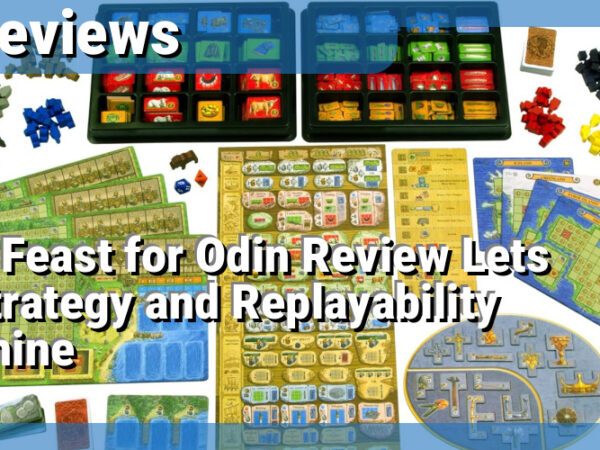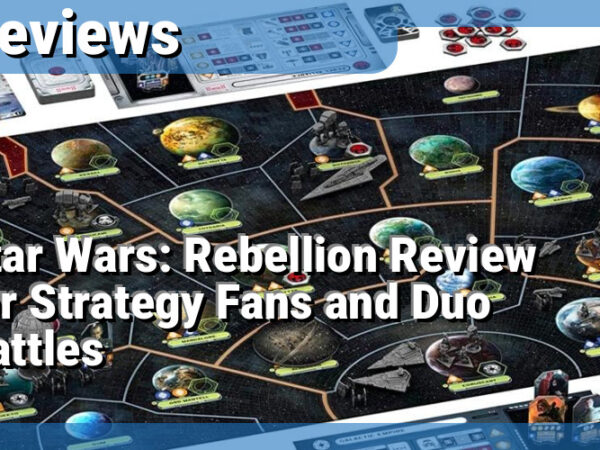Posts may contain affiliate links. Learn more in our Affiliate Link Policy.
Where to Buy HeroQuest
What Is HeroQuest?
HeroQuest is a dungeon crawling board game originally released in 1989 and brought back to life with a modern reprint by Hasbro and Avalon Hill. One player takes on the role of Zargon, the evil sorcerer who controls the monsters and sets the traps. The other players take control of the four classic heroes: Barbarian, Dwarf, Elf, and Wizard.
The goal for the adventurers is simple: survive, find treasure, defeat enemies, and complete quests. With a modular board and plastic components, the game brings the feel of a basic tabletop RPG without needing a full rulebook or dungeon master. The updated version keeps the charm of the original while adding better miniatures, clearer rulebooks, and expansions that fit more modern standards.
Who Should Play HeroQuest?
If your group enjoys light cooperative adventures, dungeon crawling, and fighting off waves of skeletons, orcs, and dread warriors, HeroQuest might fit your table. It’s accessible enough for kids with adult help, but still provides enough meat for older players to enjoy.
Best group size: 4 to 5 players (one Zargon and up to four heroes).
Average playtime: Around 45-90 minutes depending on quest complexity and player experience.
How HeroQuest Plays
Each quest is played on a large central board, which shows rooms and corridors. Zargon sets up the board secretly and reveals rooms when players open doors. Players move their miniatures by rolling dice, explore for loot, fight enemies, and try to stay alive. Zargon controls the monsters but also chooses how tough or lenient to be based on the group’s skill level.
Components and Art
The reprinted version of HeroQuest is a big visual upgrade from the original. You’ll find:
- 35+ monster miniatures with new sculpts
- 4 detailed hero miniatures
- Modular room tiles and plastic furniture
- Spell cards, equipment cards, and loot cards
- A large folding board and a quest book with 14 missions
Component quality is solid. The cards are sturdy and easy to read. The plastic models hold up well to repeated play and even look great painted if you’re into the hobby side. Some players might miss the detailed dungeon walls and furniture from the classic version, but this upgrade gets close without feeling cheap.
Rules and Accessibility
This is where HeroQuest shines and stumbles a little. The rulebook is lean. This makes it great for new players, especially kids or casual gamers. On the flip side, if your group is used to something like Gloomhaven or Descent, HeroQuest can feel too light or vague.
As the rules guy at my table, I found that the simple rule structure made it easy to teach and quick to play. Combat is based on custom dice, so resolution is fast. But there were plenty of times when we had to pause and make a call based on feel rather than strict rules—especially with spell effects or line of sight.
This can actually be a good thing for players who like telling a story over solving a puzzle. Still, if you like a game with tight tactical rules that leave no questions, HeroQuest may feel loose.
What HeroQuest Does Really Well
HeroQuest hits some things better than many modern dungeon crawlers. Here’s where it stands out:
- Pure dungeon crawling fun without baggage—no app, no campaign trackers, just dice and quests
- Easy to teach and quick to set up
- Replay value is strong thanks to multiple quests and modular content
- The GM (Zargon) role is accessible and encourages creativity
- Strong table presence with plastic furniture, classic art, and miniatures
The pace is solid. Player turns flow smoothly, and combat has just enough randomness to feel exciting. I’ve played HeroQuest with kids, teens, and adults, and it kept everyone at the table engaged.
Where HeroQuest Falls Short
If I had to pick areas where HeroQuest shows its age or falls behind modern expectations, it would be these:
- No built-in leveling system across quests unless house ruled or modified with expansions
- Limited enemy AI or variation—monsters move in straight lines and attack the nearest hero
- Zargon needs to do a lot—some players might not enjoy playing the enemy role without participating as a hero
- Somewhat slow pace if the group isn’t familiar with what rooms to explore or gets bogged down in decision-making
If your group enjoys optimization, tactical movement, or deep character customization, HeroQuest won’t scratch that itch. The heroes are fixed in abilities, and while loot helps, there’s not much of a long-term arc unless you put in the effort to track things between quests.
There’s also a good amount of luck. Since combat uses dice with a limited number of skulls for hits, you’ll have nights when attacks whiff. Some love that drama. Some get frustrated. It’s best if players are okay with both the highs and the lows.
Expansions Make a Difference
The base game includes 14 quests, which can last a long time depending on how often you play. But I’d strongly recommend looking into the expansions if the group enjoys the system. “Kellar’s Keep,” “Return of the Witch Lord,” and newer additions like “The Mage of the Mirror” expand both the difficulty and variety, and some even add new characters and enemies.
The modular quest format means you can even design your own adventures. We’ve run our own custom maps, added timed challenges, and mixed in house rules. It holds up well to customizing if one player wants to take the time to build content.
How It Holds Up Over Time
I’ve had the new version of HeroQuest in my collection for about a year now, and it still makes it to the table fairly often. It doesn’t compete with the complexity of campaign games like Frosthaven, but it never tries to. HeroQuest hits a different mark—it gives you a tight, compact fantasy adventure that feels like the early days of tabletop roleplaying in under 90 minutes.
The older players at my table like the nostalgia, the newer players enjoy the simplicity, and everyone tends to laugh over ridiculous dice rolls and near-death moments. That’s not nothing. Some games fade after five sessions. HeroQuest, even with its flaws, keeps the group coming back when we want something a little more relaxed but still packed with story and dice-chucking action.
Is HeroQuest Worth Owning?
If your gaming group likes thematic co-ops, light but adventurous combat, and you’ve got someone happy to run the monsters, then yes—HeroQuest is a solid pick. It’s an excellent fit for:
- Families or mixed-skill groups looking for simple but fun dungeon crawling
- Groups that want a D&D-lite experience without long prep or deep leveling paths
- Players who enjoy crafting their own quests and tweaking rules
If your group loves tighter mechanics, branching narrative, or full app integrations like in Mansions of Madness or Journeys in Middle-earth, then HeroQuest might feel like a step back. But for many fans of tactile board games, that’s part of the charm.
This is a “what you see is what you get” style game. Just plastic heroes, monsters, spells, and dice. No bloated campaign log. No tedious overhead. And sometimes, that’s exactly what the table needs.
